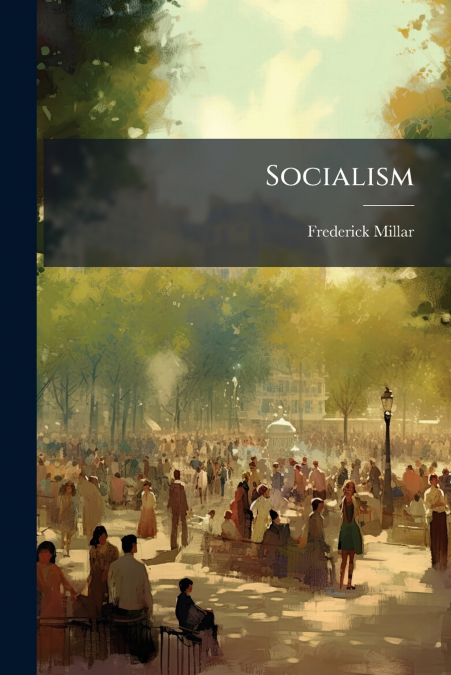
Frederick Millar
In 'Socialism: Its Fallacies and Dangers,' Frederick Millar presents a critique of socialist ideology, dissecting its theoretical underpinnings and exploring its potential pitfalls. Published in 1906, this work reflects the anxieties and debates surrounding socialism during a period of significant social and political change. Millar challenges the core tenets of socialism, addressing its economic implications and questioning its practicality. The book provides insights into the intellectual climate of the early 20th century, offering a valuable perspective on the historical context of socialist thought. Millar’s analysis invites readers to critically examine the principles of socialism and consider its potential consequences, making it a relevant resource for understanding the enduring debates about economic systems and social justice. This edition preserves the original text, allowing contemporary readers to engage with Millar’s arguments in their historical context.This work has been selected by scholars as being culturally important, and is part of the knowledge base of civilization as we know it. This work was reproduced from the original artifact, and remains as true to the original work as possible. Therefore, you will see the original copyright references, library stamps (as most of these works have been housed in our most important libraries around the world), and other notations in the work.This work is in the public domain in the United States of America, and possibly other nations. Within the United States, you may freely copy and distribute this work, as no entity (individual or corporate) has a copyright on the body of the work.As a reproduction of a historical artifact, this work may contain missing or blurred pages, poor pictures, errant marks, etc. Scholars believe, and we concur, that this work is important enough to be preserved, reproduced, and made generally available to the public. We appreciate your support of the preservation process, and thank you for being an important part of keeping this knowledge alive and relevant.